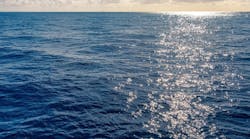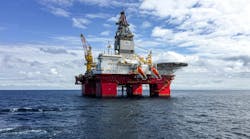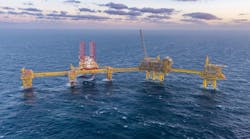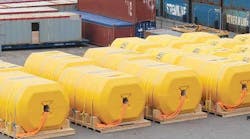Last year marked the 25th anniversary of the Piper Alpha disaster. The event, still shocking a quarter of a century later, fundamentally changed the landscape of the oil and gas industry. With even further scrutiny being applied post-Deepwater Horizon, a safety culture is now intrinsic to oil and gas companies. With the industry increasingly operating in regions hamstrung by political and economic instability, innovative and robust risk management strategies are fundamental to the viability of working in these high-risk areas.
Oil and gas operations are, by their very nature, complex, often involving the coordination of valuable assets and personnel in environments that are challenging both environmentally and from a risk management perspective. A seismic vessel, for example, which will typically pull streamers of approximately 8,000 m (26,247 ft) long and 1,000 m (3,280 ft) wide just below the surface, at 3-5 knots, with an offshore support vessel off to one side, is a regular sight in theNorth Sea or off Australia. However, placing this scenario off the coast of Africa immediately increases both the complexity and cost of the operation, as a security framework becomes imperative to safeguarding uninterrupted operations on and offshore.
For Protection Group International (PGI), the first tenet of safeguarding assets and operational flow is the development of a forensic understanding of the operating environment. Geopolitical risk analysis is the first step in addressing both strategic and tactical issues that could occur. By gathering intelligence on the in-country and extra-territorial threats and potential exposure to external risk, informed decisions can be taken as to the form and level of risk mitigation required.
Development of the analysis may require an investigation into how the organization may be targeted through online hostile reconnaissance - understanding how companies or individuals can work out means of circumventing any mitigating measures already in place. It may involve stakeholder mapping, whereby key individuals and their various connections are identified. Or specific due diligence might be carried out on key individuals, from past dealings to financial probity. All of these processes create better situational awareness of the operating environment.
With the majority of projects situated 50-100 mi (80-160 km) offshore and the threat of piracy off Africa omnipresent, it is easy to become fixated on the obvious security requirements of the marine environment. However, as all offshore projects are supported onshore, this involves a lengthy logistics supply chain that may require protection at multiple touch points. When analyzing risk, PGI believes it is critical to identify all the component parts across the enterprise risk management spectrum: strategic, operational, financial, and hazard. There is a broad range of potential impacts to consider at each individual stage of the operation.
Take Dar es Salaam in Tanzania as an example. If a Norwegian crewmember leaves Oslo airport and flies into Dar es Salaam, who meets him at the airport? What happens if the airport is closed, or if there is trouble or rioting at the airport? Where does he stay in those circumstances? How does he get from Dar es Salaam to Mtwara, the small coastal port where operations are mobilized from? And if there are problems in Mtwara, how do you look after that individual, before he has even made the transition from onshore to offshore? Whether on short- or long-term assignments, this exposure to risk heightens the liability of employers, who have a legal and moral duty to care for employees.
The Voluntary Principles on Security and Human Rights (VPSHR) were established in 2000 and have become an integral part of security provision in the energy and extractives sectors. Indeed, a security framework is as much dependent upon local content - for example, the number of local people you employ and involve - as it is the quality of your CCTV cameras or number of armoured vehicles. Local community involvement effectively applies the first layer of defense to any installation, and effective interaction should ensure fewer security incidents overall. And this now goes beyond employment opportunities or building schools; today the focus is on supporting the creation of sustainable local businesses that are fully integrated into the supply chain.
The third and final tenet of PGI's incident response should evolve naturally from the operational intelligence gathered, which is then used to inform risk mitigation. If security is compromised, a proactive approach to maintaining business continuity will ensure that the time taken to resume normal operations is minimized. Moreover, looking ahead, analyzing security breaches - both physical and cyber - enables recommendations to improve the robustness of systems and processes for the future.
The reality is that security threats to the oil and gas sector in Africa and other high risk regions will increase and evolve over the coming years. Despite the region's economic and political uncertainty, fluctuating energy prices, and challenging infrastructure, Africa remains one of the most resource-rich areas on earth, and will continue to offer significant opportunity. That opportunity will be enhanced for those who understand the criticality of placing intelligence-led safety and security risk mitigation at the heart of oil and gas culture.
Jamie Main
Director of Corporate Development
Protection Group International, parent company of Protection Vessels International
This page reflects viewpoints on the political, economic, cultural, technological, and environmental issues that shape the future of the petroleum industry. Offshore Magazine invites you to share your thoughts. Email your Beyond the Horizon manuscript to David Paganie at[email protected].




